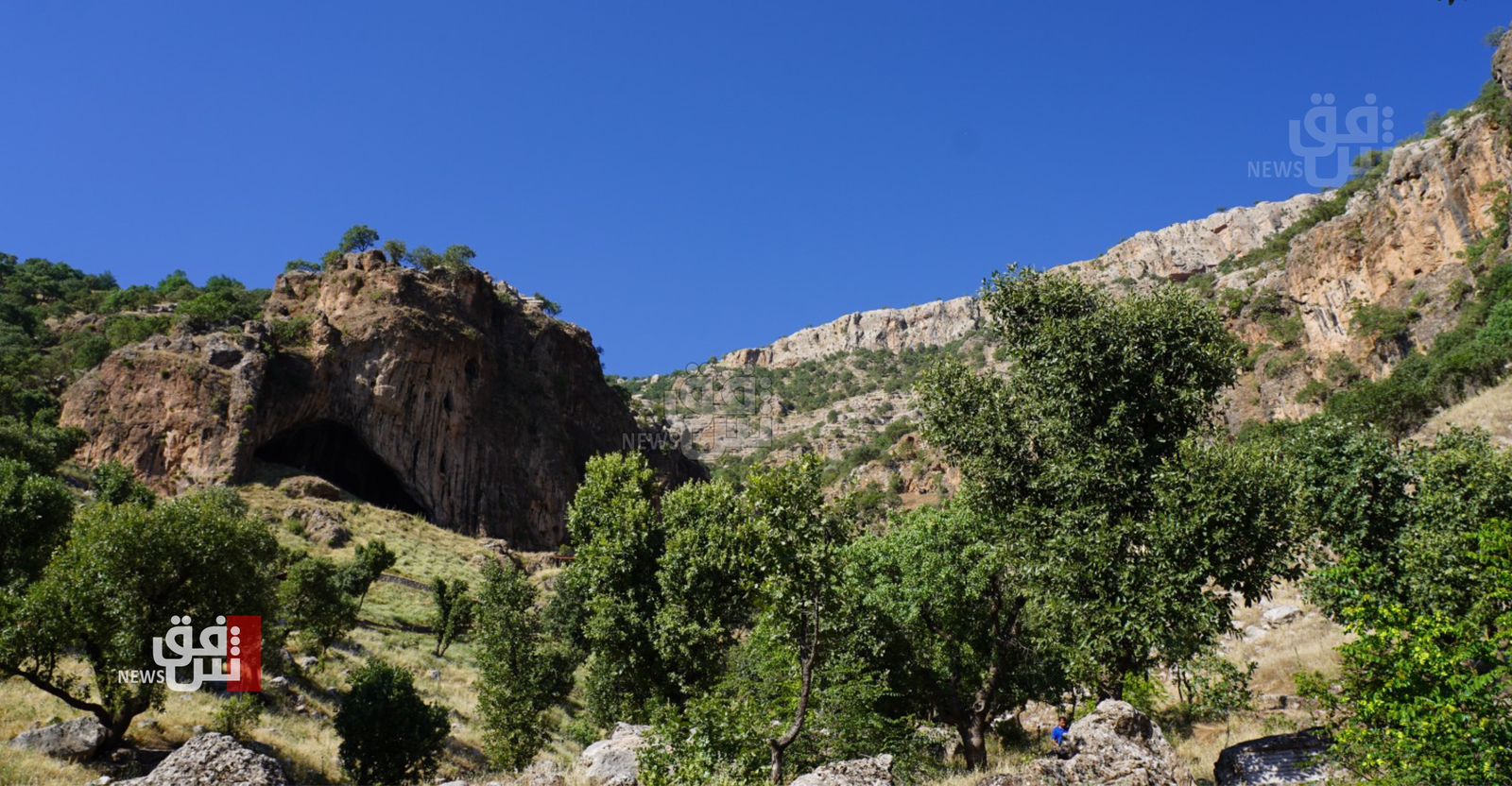Netflix doc boosts tourism to Neanderthal Cave in Iraqi Kurdistan

Shafaq News/ The Directorate of Antiquities in the Soran Independent Administration, affiliated with Erbil Governorate in the Kurdistan Region, announced on Wednesday a noticeable increase in the number of tourists visiting "Shanidar Cave" following the screening of a documentary about Neanderthal life on the Netflix platform, produced by the BBC.
Shanidar Cave in Iraqi Kurdistan has become a prominent site from the ancient Stone Age following Ralph Solecki's discovery of Neanderthal remains in the mid-20th century. Solecki argued that some of these individuals met their demise in rock collapses, while others—this being a controversial point—were buried through formal burial rituals, including flower burial rites.
Director of the Directorate, Abdul Wahab Suleiman, told Shafaq News Agency that the documentary titled "The Real Neanderthal" has sparked widespread interest, with over two billion people worldwide searching for "Kurdistan" online.
"Thousands of interested individuals now want to visit this historical site to see firsthand where Neanderthals lived."
As part of efforts to enhance tourism, Suleiman announced that his department, in coordination with the General Directorate of Antiquities in Erbil and collaboration with the University of Cambridge, is in the process of establishing a large park, including a museum to display Neanderthal bone remains and other archaeological findings discovered during excavations.
In addition, plans are in progress to revitalize the tourism sector by building new tourist facilities, including a project to construct a cable car connecting the base of the mountain to the cave.
Farhad Hussein, one of the cave's visiting tourists with his family, told Shafaq News Agency, "After watching the documentary, we have a great interest in knowing what is inside this cave, but unfortunately, there are no tourist facilities here. We hope that the government will pay more attention to this area."



